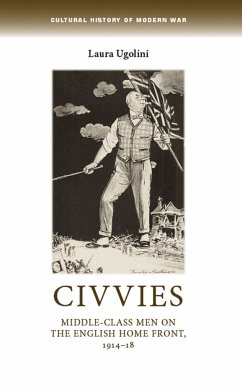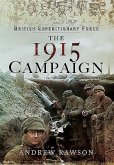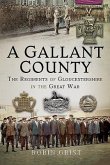Civvies explores the experiences of middle-class men on the English home front during the First World War. Although the conflict continues to attract enormous interest, most attention remains focused on the experiences of servicemen, rather than the majority of adult men who were not enlisted into the armed forces: we still know very little about those men who spent the war years on the home front. This book thus focuses on those middle-class English men who did not join the armed forces not because of moral or political objections to war, but for a variety of other (much more common) reasons, notably exemption, age, family responsibilities or physical unfitness, questioning whether and to what extent practices, relationships and identities were disrupted by the experiences of war on the home front. Civvies focuses on four inter-linked areas that were central to most English middle-class men's lives, and where the challenges of war on the home front forced middle-class men to rethink conventional understandings of appropriate, 'manly' conduct: the war effort, work, family and relationships, and consumption and leisure. The ways in which middle-class men navigated their way through these areas of life and negotiated the pressures and hardships of war on the home front, as well as their shifting relationships with 'others', either combatants or civilians, are all considered. Overall, this book questions whether, at a time when strong links were forged between manliness and military service, middle-class civilian men found themselves automatically condemned to 'unmanly' status, or did they develop alternative ways of being 'manly' civilians?
Hinweis: Dieser Artikel kann nur an eine deutsche Lieferadresse ausgeliefert werden.
Hinweis: Dieser Artikel kann nur an eine deutsche Lieferadresse ausgeliefert werden.








